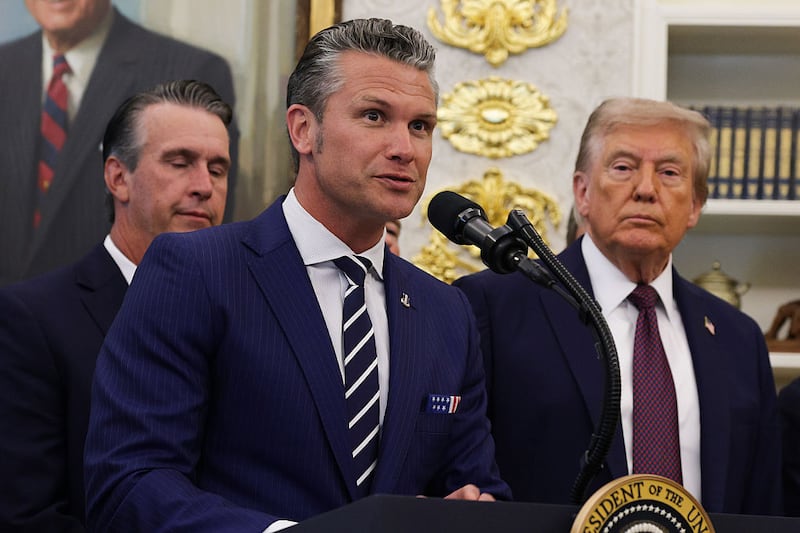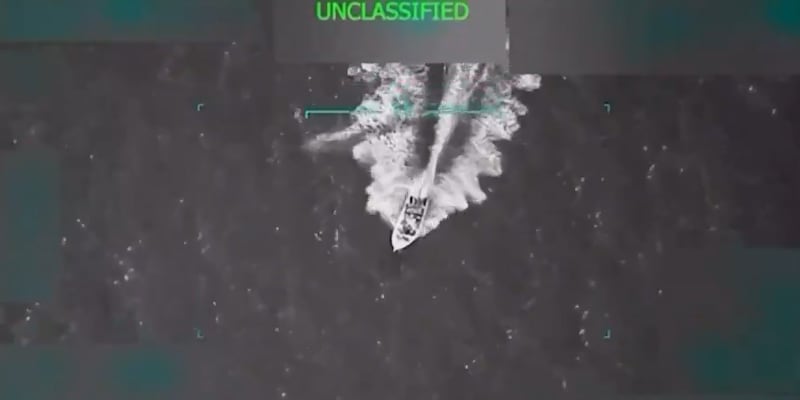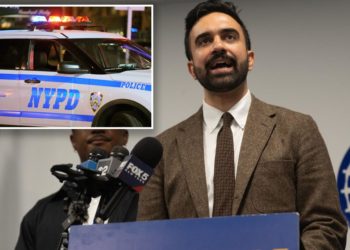Military lawyers warned that President Donald Trump’s strikes on alleged drug-smuggling boats were potentially illegal, but their opinions were ignored or sidelined, according to a new report.
Trump announced this month that the U.S. military had destroyed three different boats that were allegedly crewed by members of the Tren de Aragua gang smuggling drugs to the U.S. from Venezuela.
The president shared footage of two of the strikes—which killed a total of 14 people—on social media, and mentioned a third boat in passing while speaking to reporters outside the White House.

Officials have refused to answer questions about where the strikes took place and under what circumstances, and have not provided evidence that the boats were carrying drugs, The Washington Post reported.
They also have not provided a legal authority that would justify the summary execution of civilians.
But within the Pentagon, some career defense officials and military lawyers have provided verbal and written opinions to the Department of Defense leadership, saying they were concerned about the legality of the strikes, the Wall Street Journal reported.
The U.S. Coast Guard often intercepts suspected drug smugglers, but the standard rules of procedure for dealing with cartel members are to arrest and prosecute them, not execute them.

The officials identified problems with the legal justifications for the strikes, and they warned that the soldiers who conducted the attacks could be held personally liable for the killings, sources told the Journal.
But the officials believe that decision-makers at the Department of Defense sidelined them and ignored their concerns, a source told the paper. Other officials are looking for ways to provide legal protection for the individual military personnel involved in the strikes.
In a statement to the Journal, White House spokeswoman Anna Kelly said the trikes were “fully consistent with the law of armed conflict,” even though the U.S. is not at war with Venezuela.
“These presidentially directed strikes were conducted against the operations of a designated terrorist organization and were taken in defense of vital U.S. national interests and in the collective self-defense of other nations who have long suffered due to the narcotics trafficking and violent cartel activities of such organizations,” she said.
Chief Pentagon spokesperson Sean Parnell also denied to the Journal that any Pentagon lawyers with knowledge of the strikes had raised concerns about their legality and said the administration was on “firm legal ground.”
The Daily Beast has also reached out for comment.
Legal scholars and lawmakers on both sides of the aisle have said the strikes violated both domestic and international law, especially because Congress has authorized the use of force against terrorist groups in the Middle East, but not against Latin American drug cartels.
“Maybe the boat was coming here. Maybe it wasn’t. But nobody’s even asking whether we need to prove that. We just blow them up,” Sen. Paul Rand told Politico.
Secretary of State Marco Rubio initially told reporters that the first boat carrying 11 people, which was hit on Sept. 2, was probably headed from Venezuela toward Trinidad and Tobago, The New York Times reported.
Administration officials have since claimed it was headed to the U.S. But, if it was, in fact, hit somewhere between Venezuela and Trinidad and Tobago, the strike happened about 650 miles from the U.S. territory of Puerto Rico and more than 1,600 miles from Florida.
The area is separated from the mainland U.S. by Haiti and the Dominican Republic, Cuba, and The Bahamas.
Regardless of where the boats were located, John Yoo, the University of California at Berkeley professor who wrote the legal memos justifying President George W. Bush’s use of “enhanced interrogation” techniques on suspected al Qaeda terrorists, told Politico that the Trump administration hasn’t made the legal case that cartels should be considered enemies of war.
“There has to be a line between crime and war,” he said. “We can’t just consider anything that harms the country to be a matter for the military. Because that could potentially include every crime.”
Marty Lederman, a Georgetown University law professor and the executive editor of Just Security, also wrote on the site that the strikes appeared to have violated at least a handful of laws and legal norms.
It was “difficult to understand” how non-partisan career military officials had “assented to such an indefensible breach of the fundamental norm against targeting civilians,” he added.
Administration officials have so far shrugged off the criticism, with Defense Secretary Pete Hegseth claiming that he has “absolute and complete authority” to kill suspected drug smugglers.
Vice President JD Vance responded to accusations that the strikes constituted a war crime by declaring, “I don’t give a s–t.” During a rally in Michigan this week, he also joked about Trump saying that no more drug boats were coming into the country.
“I said, ‘I know why!’” Vance, 41, recounted with a grin. “I would stop too.”
Then, chuckling, he added, “Hell, I wouldn’t go fishing right now in that area of the world.”
The post Hegseth’s Own Lawyers Sound the Alarm on Trump’s Drug Boat Killings appeared first on The Daily Beast.




